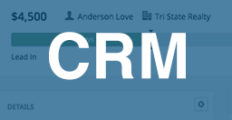Customer relationship management (CRM) software is one of the most important tools for business owners. It enables you to easily streamline business processes and nurture customer relationships, creating better services and workflows within your organization.
To use CRM software, you’ll need to decide your hosting type – mainly between self-hosted or cloud-hosted CRM. Although both solutions offer many benefits, self-hosted CRM offers more freedom and customization options.
This article will go over the seven steps to self-host your CRM. We’ll also cover what self-hosting is and why you should consider using it.

What Is a Self-Hosted CRM?
Self-hosting your CRM means using your own server to store and run the software, where you’ll generally be responsible for its maintenance and security. Although it requires more effort, it gives you greater flexibility to control your data.
Note that self-hosting your CRM can mean managing a server on-premise or hiring the services of a third-party provider. If you choose the latter, it means you can add the system to the same server as your website hosting services.
Self-hosting your CRM on the same server as your website can reduce costs as you won’t need to pay an extra monthly fee. Examples of popular CRM platforms that can be self-hosted are Odoo, HubSpot CRM, and SuiteCRM.
Key Reasons For Self-Hosting Your CRM
Here are the main reasons for self-hosting your CRM:
- Open-source software. This means you can access and modify the software’s code, improving features in the CRM system. Moreover, open-source platforms enable anyone to fix code issues and share development tips.
- Easy customization. It’s an excellent way to create custom CRM solutions for your business needs. Build a personalized CRM platform and improve the customer experience.
- Scalable. There is more flexibility in upgrading resources like data storage and bandwidth, so your business can grow the CRM solution to any capacity.
- Custom integrations. Many self-hosted CRM software can integrate seamlessly with other business software, such as enterprise resource planning (ERP) and accounting software.
- No commitment. You won’t be bound to any contract with a third party, enabling you to switch platforms easily at any time. In contrast, most commercial CRM apps, such as Salesforce and Microsoft Dynamics, require you to request a cancellation of their services.
7 Ways to Self-Host CRM
Now, let’s review a step-by-step guide to hosting your own CRM systems so that you can begin custom CRM development.
1. List Your Business Requirements and Objectives
Since every company faces different challenges, identifying your business needs and goals is crucial. This will help you to create excellent custom CRM software suitable for your business.
To do this, you’ll need to conduct a thorough business analysis. Consider the following aspects:
- Know your business size and collect valuable customer data.
- Find out which areas of your existing customer relationship management system require improvement.
- Determine the desired results or outcomes, such as better customer retention rates.
- Establish the right solution for the problem.
- Check whether you can automate the solution for a more efficient process.
2. Find a Hosting Provider
Choosing a reliable hosting provider is essential for successfully self-hosting your CRM system. With the right hosting, you can optimize your site’s performance and security, which also affects the custom CRM software.
Here are several factors to consider when selecting a web hosting provider for your CRM:
- Security. Ensure it provides robust security measures, such as SSL certificates, access management, and software updates.
- Uptime scores. Check whether the hosting provider offers a 99.9% uptime guarantee and 24/7 server monitoring.
- Customer support. Ensure it provides 24/7 customer support with fast response times via multiple channels like live chat or email.
- Pricing and renewals. Evaluate the hosting renewal and maintenance costs, as these might be higher than the initial setup cost.
Hostinger, BlueHost, and HostGator are reputable hosting providers which offer robust security and various web hosting plans for any business size.

3. Research and Evaluate CRM System Features
Similar to web hosting, finding the best CRM software will require thorough research and careful consideration. This is crucial because you need to find one that can adequately support and bring efficiency to your business.
To avoid common mistakes, ensure your CRM software offers these essential features:
- Workflow automation. It speeds up your business processes, resulting in a more efficient workflow.
- Third-party integration. It enables you to improve your CRM functionality using external applications.
- Real-time data. It can give you better insights into market demand and which products generate the most revenue.
- Lead management. It helps you nurture leads and manage each phase in the sales funnel.
- Analytics and reporting. It provides valuable insights into customer data and the results of your marketing efforts to help you create a better strategy.
4. Install Your Chosen CRM Software
After finding the best CRM software with features suitable for your business, it’s time to install it on your server using the installation wizard. Ensure that you have read the system’s server requirements before proceeding.
Depending on the software itself, you can install most self-hosted CRM by following these steps:
- Install the PHP, web server, and database versions compatible with your system, like Windows or Linux.
- Download the latest CRM files from the website.
- Unzip the files and copy them to your web server.
- Install the chosen CRM software using the installation wizard.
5. Customize The Software Settings
Customizing your CRM settings provides various benefits for your business. For example, you can add other applications, hide specific features, and rearrange the main menu based on your task priorities.
Many CRM platforms offer modules and dashboards which can be built specifically to accommodate any business. As a result, you can optimize business processes and increase overall productivity.
Here are some custom options you can create:
- Custom fields – stores customers’ unique data, such as contact information, email addresses, birthdays, and job titles. These can help to better organize your leads.
- Funnels – refers to the steps in your sales process that will help turn a lead into a customer. These include the initial outreach, contacting leads, and presenting your offer.
- Pipelines – represents the visualization of your prospect positions in the sales funnel. This will help you to forecast and track your sales team’s performance.
6. Import and Manage Your Customer Data
Data collection through various channels is crucial as it helps you better understand customer behavior. This can help you establish effective marketing campaigns, creating better customer segmentation and pricing strategies.
To enhance database integration, you’ll need to import and manage the customer data to your custom CRM system. Depending on the software, there might be several ways to import the existing data.
Furthermore, to improve data management on your CRM, we recommend implementing these tips:
- Check customer data regularly to ensure there are no invalid information or errors.
- Automate the data entry process, including creating new contacts and deals.
- Train your team on how to use the software efficiently, so your business can maximize its benefits.
- Focus on crucial data, such as names, emails, and phone numbers, to standardize your data entry process.
7. Use CRM Analytics
After setting up your self-hosted CRM, it’s time to process customer data into valuable information. This includes tracking your marketing and sales performance and continuously refining your strategies to generate more leads.
Since CRM platforms offer a wide range of analytics, we recommend using these metrics to optimize the tracking process:
- New leads – monitors how many potential new customers are at the beginning of the sales pipeline.
- Customer interactions – tracks how many calls or emails lead to further actions from potential customers.
- Website engagement – identifies who visits your website or social media, subscribes to your newsletter, and buys your products.
- Purchasing behavior – analyzes what makes customers purchase a product and why they stop buying it.
- Problem tracking – helps you discover and solve any issues related to your products.
How to Choose the Right CRM Software for Self-Hosting?
Choosing the right CRM software for self-hosting is crucial to ensure it meets your business needs and technical capabilities. Here are key factors to consider:
- Features and Functionality: Evaluate the core features the CRM offers, such as contact management, sales tracking, automation, and reporting. Make sure it includes functionalities that align with your business processes.
- User Interface and Experience: A user-friendly interface can greatly impact your team’s adoption. Look for software that is intuitive and easy to navigate, minimizing the learning curve.
- Customization Options: The ability to customize the CRM is important for tailoring it to your unique needs. Check if the software allows you to modify workflows, add custom fields, or integrate third-party applications.
- Scalability: Choose a CRM that can grow with your business. Consider whether it can handle increasing users and data without compromising performance.
- Technical Support and Community: Ensure the software provider offers robust support, including documentation, forums, and customer service. A strong user community can also provide additional resources and troubleshooting help.
- Cost and Licensing: Evaluate the CRM’s pricing model. Determine if it fits your budget and check for hidden costs related to self-hosting, such as server maintenance or upgrades.
Conclusion
By self-hosting your CRM software, you’ll be able to deliver more personalized campaigns to potential customers and enhance your relationship with existing ones. This is because self-hosted CRM solutions give you full control over your data, making it easy to customize.
To help you get started, here are the seven steps to self-hosting your own CRM system:
- Define your business needs and goals.
- Find a reliable hosting provider.
- Review the CRM features.
- Install the CRM software on your server.
- Customize your CRM settings.
- Import and manage customer details to your CRM.
- Utilize CRM analytics to measure customer satisfaction and sales performance.
Whether you choose a self-hosted or cloud-based CRM software, remember to evaluate your business size and needs to find the right solution.























Leave a comment!